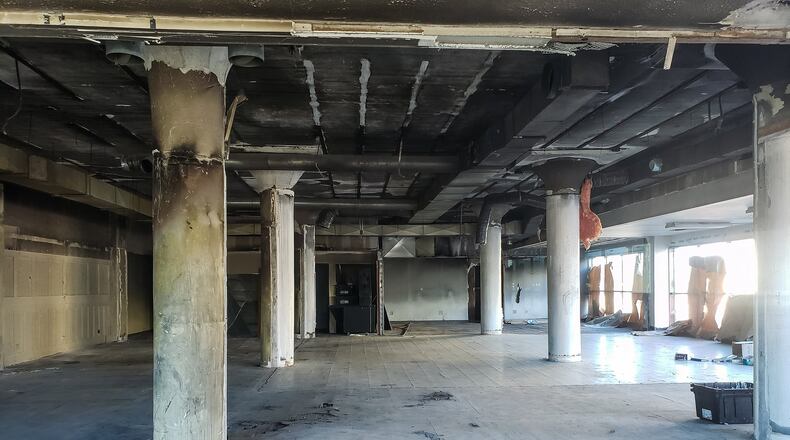City Manager Doug Adkins said the proposed ordinance is not targeting any particular buildings in the downtown Urban Central Core District.
“The goal is to protect the investment of owners who have renovated their buildings and encourage further renovation and occupation within the district,” Adkins said. “This was initially requested by downtown property owners and DMI (Downtown Middletown Inc.).”
Officials said there have been ongoing concerns regarding the upkeep, maintenance and emergency accessibility of vacant buildings in the downtown area.
“Most owners can be reached by the city as needed,” Adkins said. “Some are silent, some work with us regularly, others are not accessible.”
The proposed ordinance includes exemptions to these registration requirements for buildings in active renovation, those that suffer fire damage, and those that are for sale. Failing to comply with any of these standards can result in civil fines of $100 a day for each day the building is non-compliant, and the ability for the city to abate and assess violating properties.
The proposed ordinance would require:
• Registration of the vacant property
• Designation of a local owner or agent to contact
• Submission of a plan for the property
• Maintaining liability insurance
• Maintaining minimum maintenance standards for building
In her report, Susan Cohen, city administrative services director, said the increased enforcement costs should be offset by the annual registration fee of $200 for vacant residential buildings and $400 for vacant commercial buildings in the first year.
Cohen said the vacant residential fees would double each year, up to $3,200 on the fifth year, and vacant commercial fees would double each year, up to $6,400 for the fifth year. Those building owners who do not pay the annual fee will see those fees assessed to their property taxes at the city’s current interest rate.
The legislation has a 10-year sunset period.
Denise Brodsky of Hamilton, who works with the SORG Revitalization organization, asked the city council to look carefully at the proposal and make sure it is supportive and not punitive.
Ken Bowman, a SORG board member, said he wanted clarification about the definition of what a vacant property is.
“I’m concerned about the unintended consequences with the commercial building (piece),” he said.
The Sorg Opera House is part of the commercial building category, and plans have been made for renovating the former office building by the SORG organization, officials said.
Mayor Larry Mulligan said the intent of the proposed ordinance is not to go after properties being renovated.
Jeff Payne, DMI executive director, spoke in favor of the proposed ordinance. He said it was developed with DMI’s economic development restructuring committee for about two years.
“We want to make sure downtown is vibrant and sustainable,” Payne said. “We’re not targeting anyone. The focus is on safety and to encourage reuse of the buildings.”
Councilwoman Ami Vitori, a downtown property owner, said this is for landlords who don’t respond and is not intended to be punitive.
About the Author



